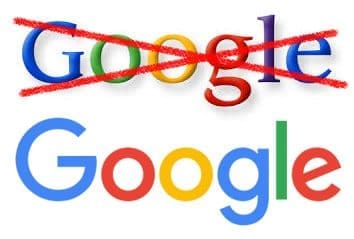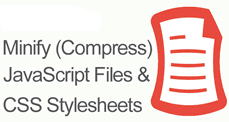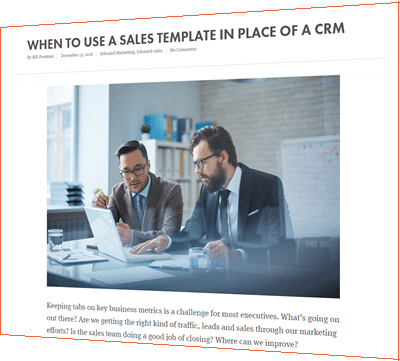 Google has changed a lot lately. . . and not just the logo! As marketers, we’re often focused on keywords and keyword groups for our blog posts and URLs, but now new ranking factors are involved and we need to focus on some more “background” issues. Yes, proper use of headings and keywords is still important, but we also need to think about site speed, site security, schemas, and overall page structure.
Google has changed a lot lately. . . and not just the logo! As marketers, we’re often focused on keywords and keyword groups for our blog posts and URLs, but now new ranking factors are involved and we need to focus on some more “background” issues. Yes, proper use of headings and keywords is still important, but we also need to think about site speed, site security, schemas, and overall page structure.
Site speed and security are now ranking factors
Google has indicated site speed as one of the signals used by its algorithm to rank pages. Site speed is also important to users, as they expect pages to load almost instantly. Even a one-second delay can drastically reduce pageviews, customer satisfaction and drop conversions.
HubSpot has implemented speed-enhancing features like a content distribution network (CDN), minified CSS files, and hosting your content on regional servers. But there are some things you can do to further speed up your own page load time. The main one is to resize your images before adding them to your web pages and blog posts.
Resizing your images
 If you have an image that is 800 x 600 pixels, for example, and you’re displaying it at 200 x 150 pixels, your browser is still downloading the entire 800 x 600 image and THEN squeezing it down. So you’re downloading 16x more image than is needed. Multiply that by the number of images on your web page (or blog), and this really adds up fast!
If you have an image that is 800 x 600 pixels, for example, and you’re displaying it at 200 x 150 pixels, your browser is still downloading the entire 800 x 600 image and THEN squeezing it down. So you’re downloading 16x more image than is needed. Multiply that by the number of images on your web page (or blog), and this really adds up fast!
Best practice is to resize your images outside of your CMS.
The second way to optimize your images is to compress them. There are several free online tools for image compression, such as tinypng.com, that can reduce your image sizes dramatically without losing quality. You can see size reductions anywhere from 25% to 80%!
Minify your javascript code
 Another way to dramatically speed page-load times is to minify the javascript on the page. We recently built a 4,000-product catalog on HubSpot, and we used javascript extensively. Page-load speed was actually faster than HubSpot’s average page load speed! Minify your javascript and you’ll reap the rewards.
Another way to dramatically speed page-load times is to minify the javascript on the page. We recently built a 4,000-product catalog on HubSpot, and we used javascript extensively. Page-load speed was actually faster than HubSpot’s average page load speed! Minify your javascript and you’ll reap the rewards.
Minifying your CSS code can also decrease page-load times. HubSpot does this automatically for you.
Encrypt your website with HTTPS
 Encrypting your website not only strengthens its security– it can also help improve SEO and conversions. Encryption changes a website from HTTP to HTTPS and ensures that your password is never in the open. Thus, even if someone hacks into your network they do not see your password.
Encrypting your website not only strengthens its security– it can also help improve SEO and conversions. Encryption changes a website from HTTP to HTTPS and ensures that your password is never in the open. Thus, even if someone hacks into your network they do not see your password.
Encryption keeps your personal information secure. Why encrypt your website? HTTPS can help your website, even if you’re not taking credit cards. Specifically, HTTPS:
- Verifies the website is the one the server is supposed to be talking to
- Stops tampering by 3rd parties; stops Man-in-the-middle attacks and makes the site more secure for visitors
- Encrypts all communication, including URLS and protecting browser history, as well as more sensitive information like credit card information
- Ranks better on Google
- Corrects referrer data
When someone visits an (unencrypted) website from an encrypted site, the referral data is removed. Those visitors are then incorrectly labeled as “direct visitors.” On an encrypted site, referral data is correctly recorded, providing you an accurate number of referrals to improve your marketing measurement and helps focus on what works. - Enhanced customer trust
An encrypted site has a lock icon on the address bar. This simple icon improves customer trust. Some reports have noted that 61% of customers have not purchased online because the site does not have a trust seal.
If you’re hosting your website on HubSpot, it will automatically be converted to a secure HTTPS site and redirects will automatically be created for you in the next few weeks. These HTTPS conversions are already starting to roll out across the HubSpot customer base.
SEO training for marketers
69% of online marketers use SEO strategies to drive traffic to their sites, yet many marketers don’t understand or utilize the simple things they can do to select keywords phrases that people are actually searching for; and they don’t understand how to use those phrases properly in blog posts and web pages.





